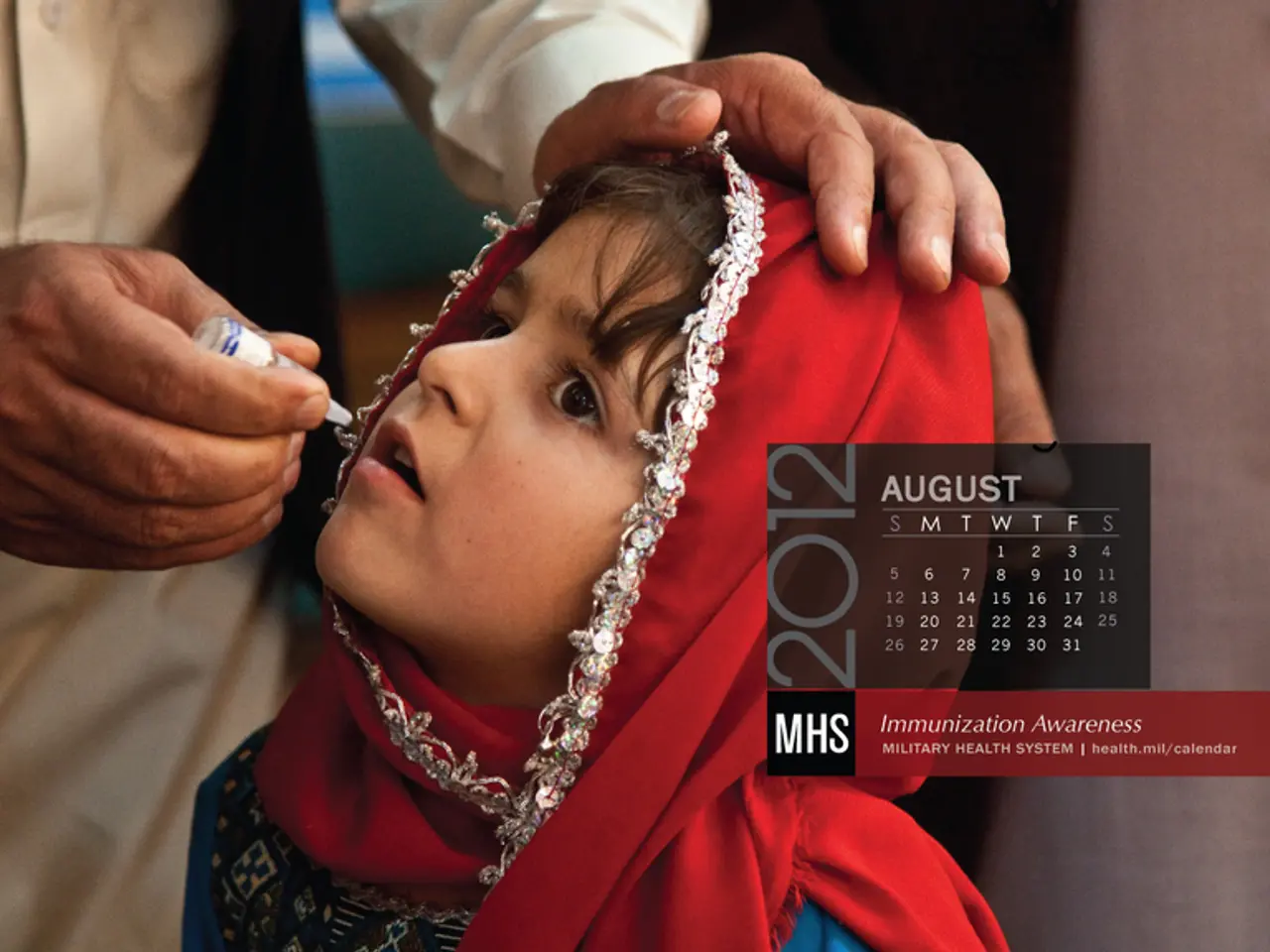Recommendations by CDC advisers for limiting MMRV vaccine choices in younger children, and forthcoming decision on hepatitis B vaccine restrictions.
The Advisory Committee on Immunization Practices (ACIP) in the United States has voted to narrow the recommendations for the combined MMRV (measles, mumps, rubella, and varicella or chickenpox) shot, potentially affecting the immunization of young children.
This week's decision comes after the committee's second meeting since Health and Human Services Secretary Robert F. Kennedy Jr. dismissed all 17 of its members in June. The vote, which was 8-3, means the combined MMRV shot will no longer be recommended for younger kids getting their first dose around 12 months old.
Instead, the committee has recommended that these children should receive two separate shots, one combining measles, mumps, and rubella, and a second shot for chickenpox. This change could lead to more doctors' appointments, more individual shots for children, and potentially more infections or missed cases.
The panel members seemed reluctant to do anything that could potentially restrict access for the roughly 50% of American children covered through the federally funded Vaccines For Children (VFC) program. Many worry about access and the impact of any changes that could negatively impact the more than half of American children who receive no-cost shots funded through a federal program tied to the CDC committee recommendations.
One person abstained from voting due to a conflict of interest. Dr. Cody Meissner, an ACIP member, stated that giving two doses instead of a combination vaccine could lead to lower compliance rates.
The CDC vaccine advisory committee is not considering eliminating or recommending against the MMRV or hepatitis B vaccines completely. If the CDC accepts the group's recommendations, parents of kids who receive VFC vaccines can still choose to give their kids a combination shot of MMRV for their first dose if they don't want to separate shots.
The decision on whether to change the recommendation for administering the MMRV vaccine at around 12 months of age to a recommendation for two separate vaccinations also has implications for vaccine supply and manufacturing logistics. Some fear that this could complicate the process, potentially leading to shortages or delays.
Republican Sen. Bill Cassidy expressed concern about the committee's decisions, stating that there will be hepatitis B transmission if changes are made to the existing recommendation. Some studies have suggested a slightly elevated -- but overall very rare -- risk of seizures when all four vaccines are given as a combo shot to kids 12 to 15 months old.
It's important to note that many of the newly appointed advisers have previously expressed vaccine-skeptical views. However, the panel's decisions are based on a thorough review of scientific evidence and expert opinions.
Most major insurance providers have said they will continue covering existing vaccines at least through 2026. The combo shot will continue to be recommended as an option for a child's second dose, which is given between ages 4-6.
The changes to the MMRV vaccine recommendations could result in major disruptions and more illness, according to experts. However, the committee's decisions are aimed at ensuring the safety and efficacy of the vaccines while maintaining access for as many children as possible.
Read also:
- October 16th - Volunteer Workforce Training
- High recovery rate for over 90% of patients, asserts the head physician of Almaty's 32nd polyclinic, regarding mobile treatment groups.
- Bee colonies in Zirndorf city have been affected by American foulbrood - a designated restriction zone has been established - no immediate threat to local residents.
- Federal Health Care Blueprint for 2026 Revealed by OPM Outlining Key Strategies and Objectives




